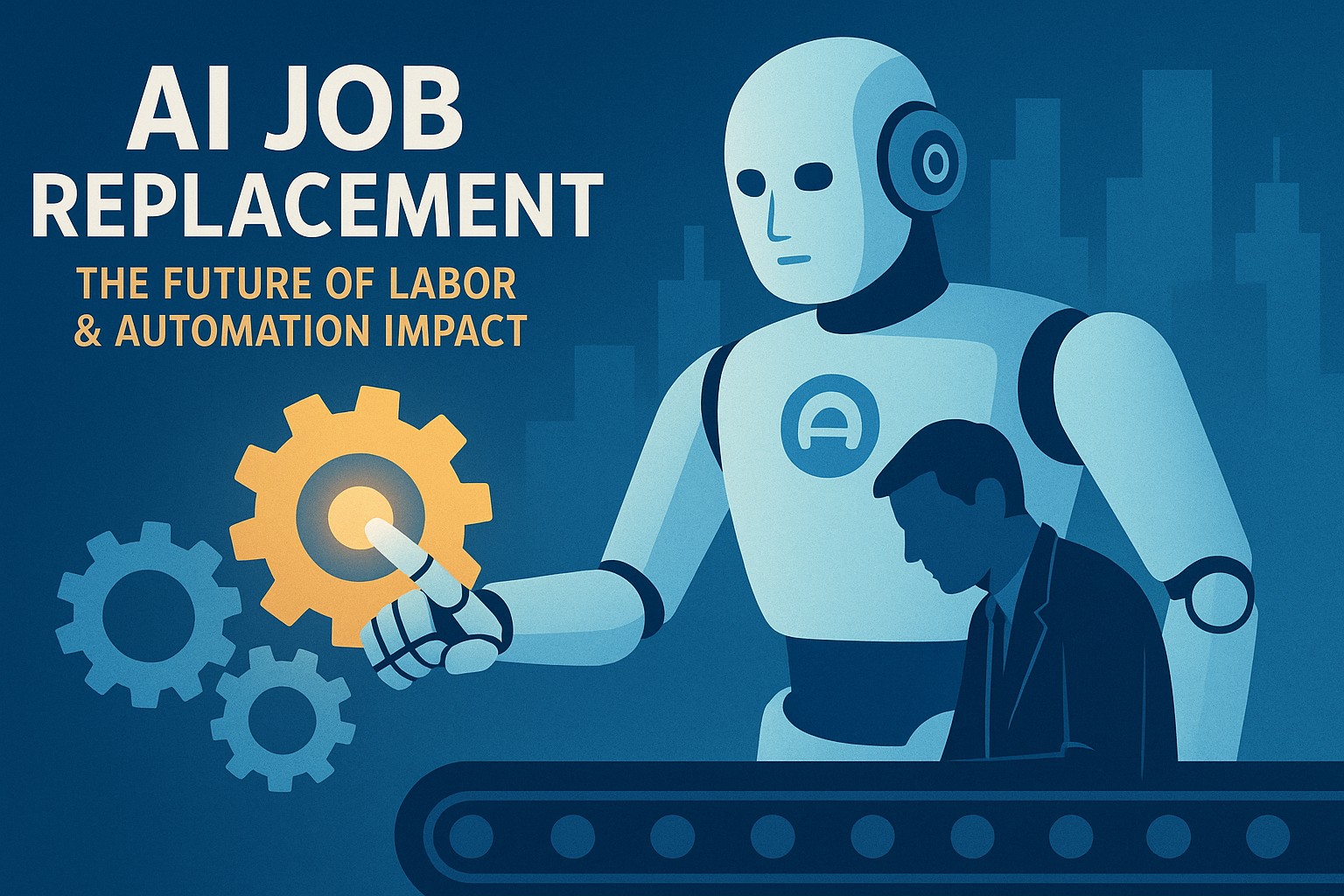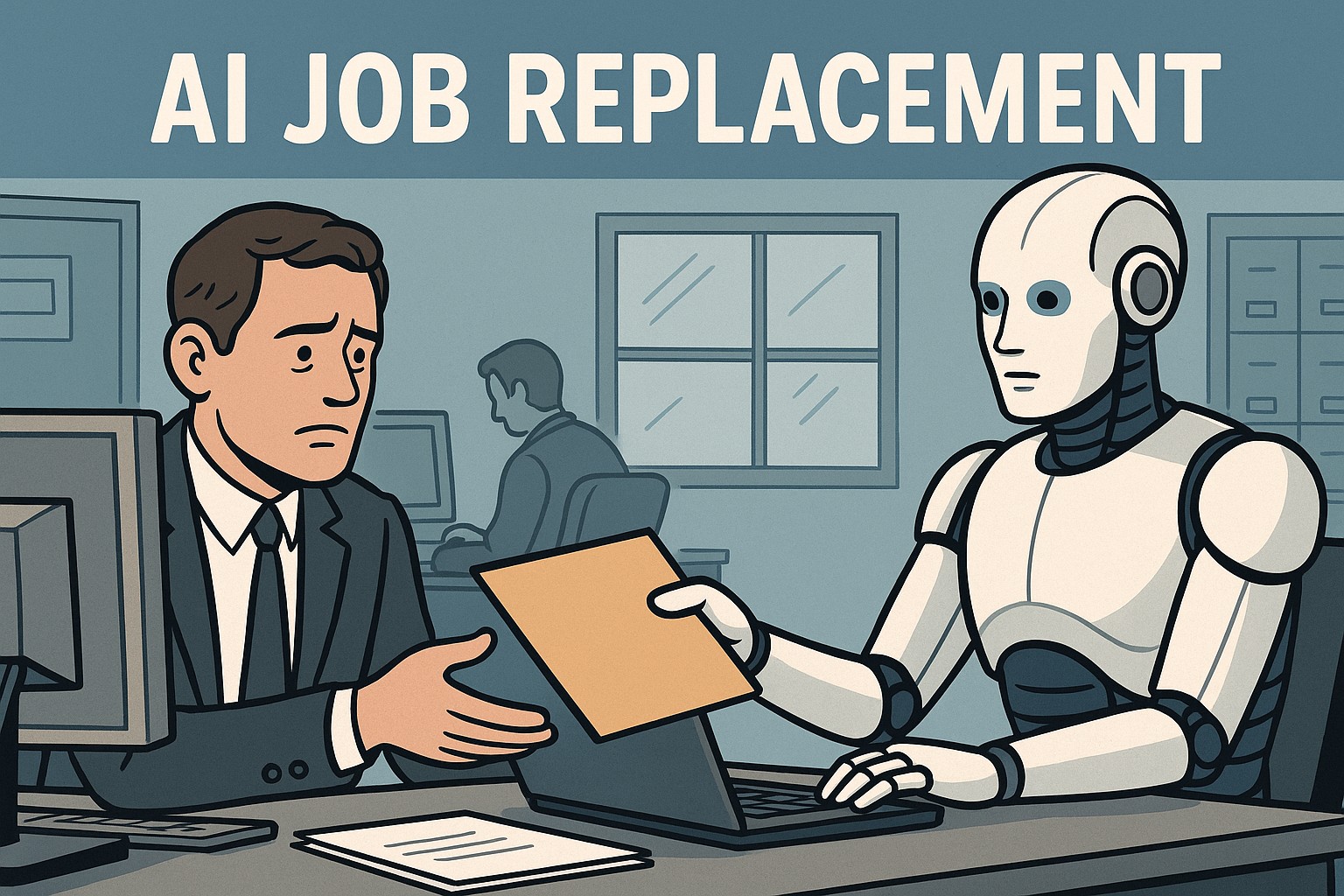AI Job Replacement is no longer a distant concept; it is rapidly becoming a reality. As advancements in artificial intelligence (AI) and robotics continue to accelerate, experts predict that these technologies will increasingly replace human labor, transforming industries worldwide. While there is concern over mass job displacement, there is also optimism about the potential benefits, including economic growth and enhanced productivity. This article delves into the future of AI job replacement, based on insights from various economists and futurists.
AI Job Replacement: A Growing Concern for Global Labor Markets
In recent years, there has been growing apprehension about AI job replacement as robots and AI systems continue to outperform humans in tasks once considered exclusive to human workers. Futurist Adam Dorr recently discussed the dramatic shifts expected in global labor markets, predicting that AI would lead to massive disruption. According to Dorr, industries dependent on human labor will undergo significant changes, as AI takes over tasks such as data analysis, decision-making, and even customer service (The Guardian).
The Impact of AI on Jobs in the US and India
One of the primary concerns surrounding AI job replacement is the impact it will have on workers in both developed and developing economies. In the United States, many middle-skill jobs, particularly in the manufacturing and service sectors, are already being automated. This has resulted in a decline in certain job opportunities and raised fears about long-term unemployment (Times of India).
On the other hand, countries like India are witnessing both challenges and opportunities. India, being a major outsourcing hub, may face disruptions in its IT sector, where many jobs are susceptible to automation. However, Indian experts argue that India could benefit from AI by tapping into the emerging AI-driven outsourcing industry. By focusing on AI technologies and investing in digital skills training, India can create a future where AI job replacement creates new roles, particularly in tech development and AI maintenance (Economic Times).
Chilling Predictions: A Mad Max-Like Future for Jobs?
Top economists have painted a grim picture of the future in which AI job replacement leads to societal upheaval. As AI increasingly takes over roles traditionally held by humans, some fear a dystopian outcome akin to the “Mad Max” scenario. A top economist has warned that without proper intervention, society may face widespread job loss, exacerbating income inequality and leading to increased social unrest. This dystopian view is not far off, as the rise of automation could create a massive divide between those who own AI technologies and those displaced by them (Times of India).
Can Countries Adapt to the AI Revolution?
Despite these concerns, experts argue that countries can adapt to the rise of AI job replacement through strategic planning and policy implementation. In Kenya, for instance, there is growing interest in attracting AI-related outsourcing jobs, which could help offset the effects of AI job displacement in other sectors. The Kenyan government is already working to attract AI-driven companies to set up operations, offering tax incentives and investing in workforce education. This approach could position Kenya as a key player in the global AI landscape, creating new job opportunities in the process (Economic Times).
Preparing for the Future of AI Job Replacement
While the shift toward AI job replacement seems inevitable, there are several ways to mitigate its negative impacts. First, governments and businesses must focus on reskilling workers and preparing them for the new digital economy. As AI takes over repetitive tasks, the demand for human workers skilled in areas such as AI programming, machine learning, and data analysis will grow (The Guardian).
Second, the rise of AI will require a shift in how society views work. In the future, many people may no longer need to work traditional 9-to-5 jobs, thanks to the automation of basic tasks. This shift could lead to the rise of more flexible, remote work options, providing workers with a better work-life balance.
The Road Ahead: AI Job Replacement and Economic Growth
Although the rise of AI job replacement presents challenges, it also offers significant economic potential. Economists argue that the productivity gains from automation will lead to lower costs, higher quality products, and faster service delivery. This, in turn, can lead to economic growth, new business opportunities, and a higher standard of living for many.
In conclusion, the future of AI job replacement is one of transformation. As AI continues to reshape industries and redefine the workforce, it will be crucial for governments, businesses, and workers themselves to adapt and prepare for a rapidly changing world.
Conclusion
The rise of AI job replacement is an inevitable shift that presents both challenges and opportunities. While it is crucial to address the fears surrounding job loss, there is potential for AI to create new roles and contribute to economic growth. With the right approach, countries like the US, India, and even Kenya can position themselves to benefit from AI’s transformative power while protecting vulnerable workers. As we look toward the future, AI promises to be a game-changer in how we work and live.


